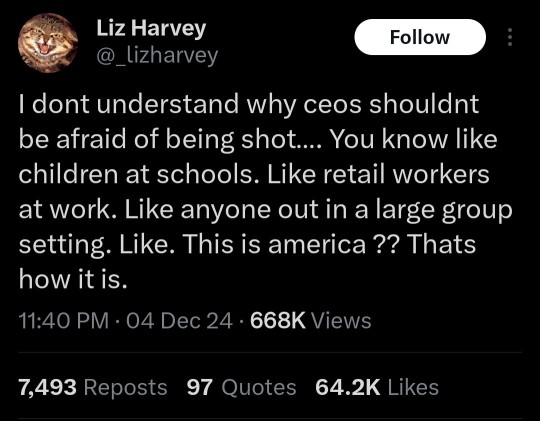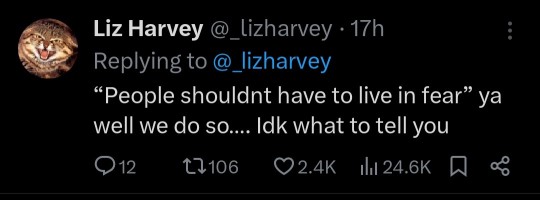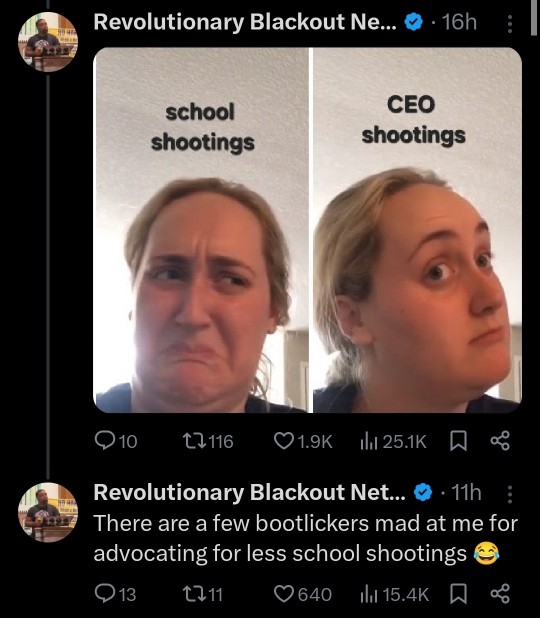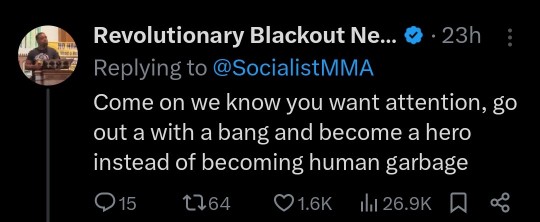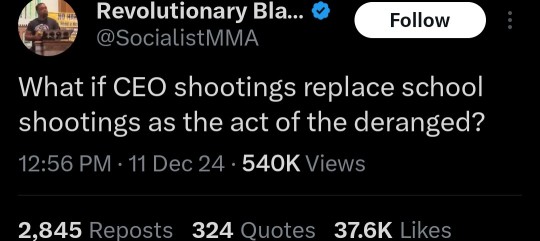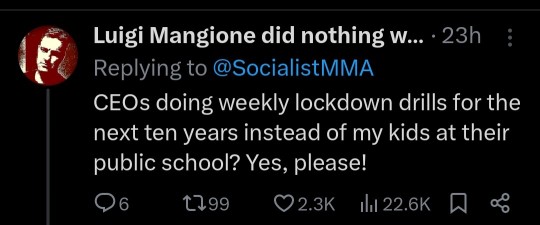#they are a UNIT
Explore tagged Tumblr posts
Text
Actually my ideal Sypre sidequest is THE PARENTS ADVENTURE, starring:
Surena Marie and Carlos Luna as Wilma and Digby Thistlespring
Izzy Roland as Sandra Lynn Faeth
Brennan Lee Mulligan as Jawbone O'Shaughnessy
Rekha Shankar as Sklonda Gukgak
Aabria Iyengar as Hilariel Seacaster
DMed by Lou Wilson and cameo starring Raph Chestang as Gilear Faeth and Ify Nwadiwe as Gorthalax the Insatiable, in Carlos-as-Doctor-Wenabocker style
#i also think izzy as jawbone and brennan as sandra lynn would slay#i'm just obsessed with the parents and their whole deal#and i also think aabria would bring a lot of depth and tragedy to hilariel#fantasy high#dimension 20#please i just need rekha back in the dome again#the other funny option is just having the same player do digby and wilma at the same time#they are a UNIT
1K notes
·
View notes
Text
you guys made luigi mangione trend for days and I need to see the same energy for brianna boston. she is a 43 year old mother of three who ended a phone call with blue cross blue shield (after being denied a claim) “delay deny depose, you people are next” and is now being held under a 100,000$ bond and could face FIFTEEN years of prison if charged. she has no weapons, her record is clean, and yet she is being held behind bars. they are afraid of the public and are trying to subdue. do not let them!!!! be outraged that our freedom of speech is being threatened!!!!! deny defend depose! free brianna boston!
190K notes
·
View notes
Text

This woman was arrested for WORDS.
We should rally for her as much as the guy who actually shot someone. Push back.
70K notes
·
View notes
Text
Hey do y’all remember when Boeing fucking killed a guy last year. And we all said “huh I guess Boeing fucking killed a guy” and then went on with our lives. And everybody knew that Boeing had fully just fucking executed a guy and nothing came of it. Like there was no police investigation no justice no nothing. Like literally EVERYBODY knew that Boeing had full on murdered a guy to silence him and there wasn’t any consequences for them. Kinda crazy.
71K notes
·
View notes
Text

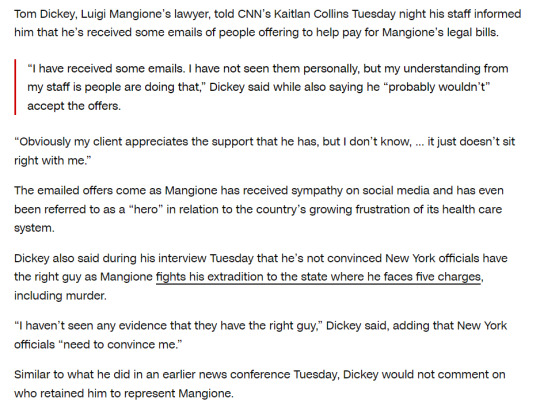
fucking yes
64K notes
·
View notes
Text

74K notes
·
View notes
Text
Remember earlier this year when Boeing very clearly had a whistleblower executed? And law enforcement didn't even look for anyone or release any info about it or anything?
People keep comparing Luigi Mangione's case to the subway murderer who got off because of systemic eugenics, but I think there's something more apt about the fact that a CEO had someone executed in recent memory, with zero attempts to find a culprit, while they spared no expense at all to find (and probably frame, it's beginning to look like) someone who shot a CEO. It's always fine to slaughter if you're rich, but if you kill the rich, they will hunt you down.
75K notes
·
View notes
Text

id: a tweet from pop tingz. "max announces the release of the 'luigi mangione: the ceo killer' documentary on february 17th."
hey! just a reminder this alleged "ceo killer" hasn't been convicted of anything, hasn't even gone to trial, was taken into custody without being dna tested or fingerprinted (what fingerprints they did find near the scene were entirely circumstantial), didn't have any contact with legal rep before his extradition hearing, and wasn't identified as a facial match by the fbi's top notch ai software. just don't watch this doc, it's bound to be full of bullshit just like tmz.
#pls fact check this#i tried to do my own research but. well who knows#luigi mangione#united healthcare
49K notes
·
View notes
Text


#News#brian thompson#europe#politics#nhs#scandinavia#britain#anti capitalism#capitalism#uk#den#ark#nyc#united healthcare
63K notes
·
View notes
Text


61K notes
·
View notes
Text
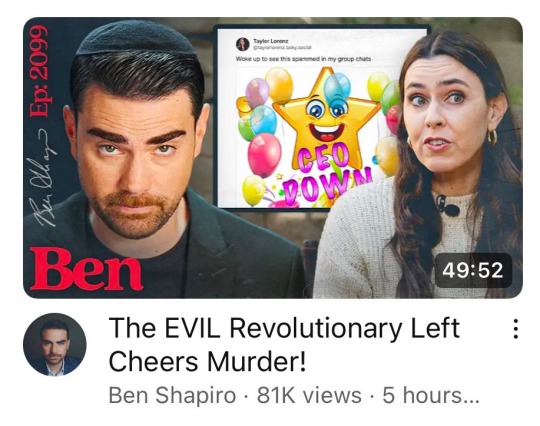


something interesting is happening
96K notes
·
View notes
Text


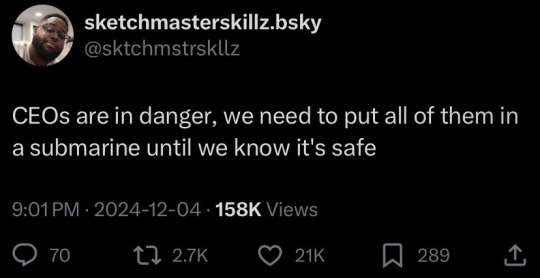
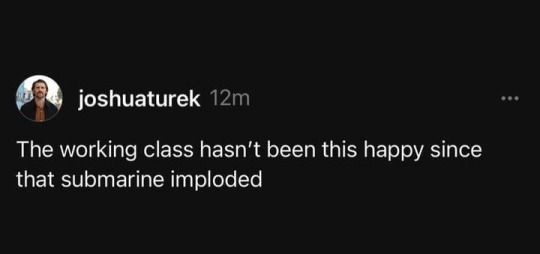

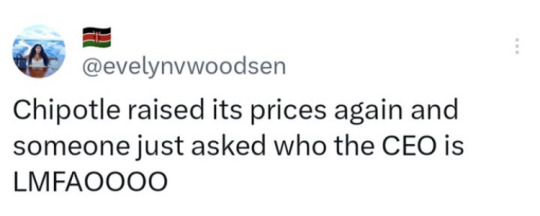
compilation of my favorites so far. this energy for 2025 please
72K notes
·
View notes
